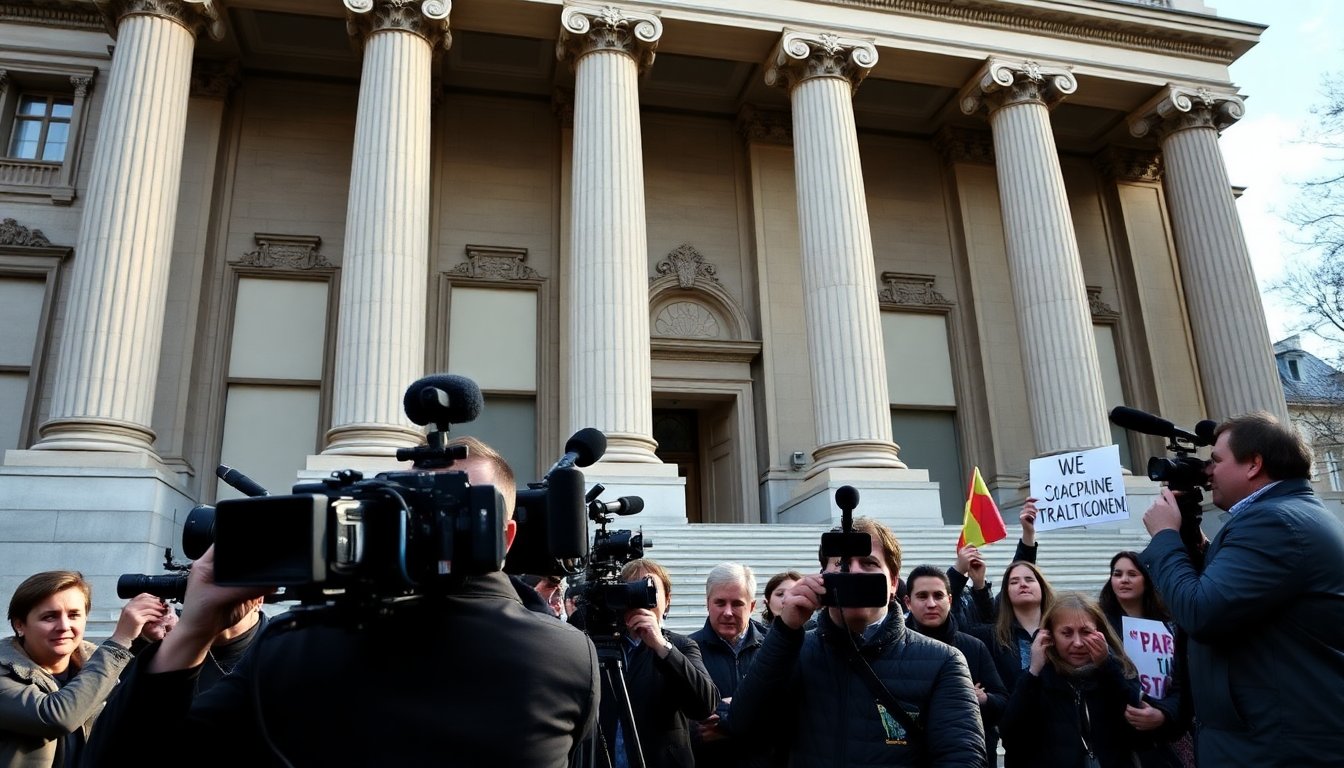Table of Contents
The political landscape in France experienced a significant upheaval as former president Nicolas Sarkozy received a five-year prison sentence for his involvement in a scandal related to campaign financing from the late Libyan leader, Moammar Gadhafi. This verdict highlights the complexities of political funding and raises critical questions about the integrity of electoral processes.
In a trial that captured national attention, Sarkozy was found guilty of conspiring to illegally obtain funds during his 2007 presidential campaign. The allegations centered on claims that he sought financial assistance from the Gadhafi regime, known for its controversial governance and human rights violations. This case not only tarnishes Sarkozy’s legacy but also serves as a stark reminder of the potential for corruption in high office.
The Gadhafi connection
The origins of the scandal date back to Sarkozy’s presidential campaign. Allegations suggest he received substantial financial support from the Libyan government, which aimed to cultivate a favorable relationship with France. Reports indicate that the funds, amounting to millions of euros, were allegedly funneled to Sarkozy’s campaign to ensure a diplomatic advantage.
Political implications
This conviction holds significance not only for Sarkozy but also for the broader context of political accountability. The French judicial system’s readiness to prosecute a former head of state sends a powerful message about the necessity of transparency in political financing. It reinforces the idea that no one is above the law, regardless of their position or past achievements.
Furthermore, the ruling casts a shadow over France’s political establishment, raising concerns about ethical practices among politicians in securing campaign funds. As political financing comes under increasing scrutiny, this case may pave the way for reforms intended to prevent similar incidents in the future.
Reactions and aftermath
Reactions to the verdict have varied, with some commending the judiciary for taking decisive action against corruption, while others perceive it as a politically motivated attack on Sarkozy. Supporters argue that the trial was biased and that the charges were inflated to undermine his political career.
In response to the ruling, Sarkozy announced plans to appeal, maintaining his innocence and asserting that the judicial process was flawed. His legal team is expected to vigorously challenge the verdict, arguing that the evidence was insufficient to justify such a severe sentence.
What lies ahead
As Sarkozy navigates the appeals process, the implications of this case are likely to reverberate throughout the political landscape in France. Observers are keenly watching to see how this will influence future political financing laws and whether it will prompt stricter regulations on campaign contributions.
This situation underscores the necessity for political leaders to adhere to ethical standards when seeking funds for their campaigns. The outcome of this case could significantly impact public perception of political integrity and the trust citizens place in their elected officials.
The conviction of Nicolas Sarkozy represents a crucial moment in French history, emphasizing ongoing issues of political corruption and the importance of accountability in governance. As the country copes with the consequences of this scandal, the future of political practices in France remains uncertain.


